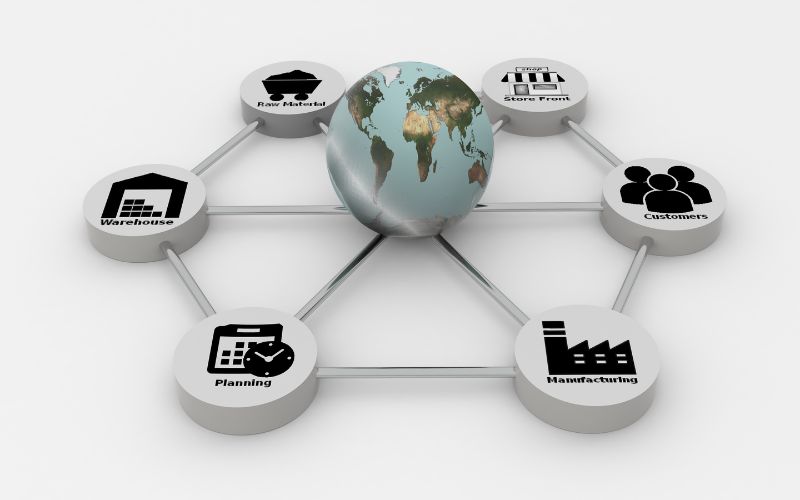
In the face of accelerating climate change and growing societal concerns about
In an era marked by heightened environmental awareness and growing social consciousness, businesses are under increasing pressure to adopt sustainable practices across their operations. One critical area where sustainability efforts are gaining traction is within supply chains. As the backbone of global commerce, supply chains play a pivotal role in shaping the environmental and social impacts of products and services. Recognizing this, stakeholders are increasingly emphasizing the importance of integrating sustainability principles into supply chain management practices as a fundamental component of Environmental, Social, and Governance (ESG) strategies.
Understanding Sustainable Supply Chains
Sustainable supply chains are those that prioritize environmental stewardship, social responsibility, and ethical governance throughout the entire lifecycle of products and services. This entails minimizing environmental footprints, promoting fair labor practices, fostering community engagement, and upholding ethical standards across all stages of the supply chain—from sourcing raw materials to manufacturing, distribution, and end-of-life disposal.
At the core of sustainable supply chain management lie principles of transparency, accountability, and collaboration. Companies are encouraged to work closely with suppliers, customers, and other stakeholders to identify sustainability risks, set ambitious targets, track performance metrics, and implement continuous improvement initiatives.
Environmental Considerations in Supply Chain Management
From a environmental standpoint, sustainable supply chains seek to minimize resource consumption, reduce waste generation, and mitigate greenhouse gas emissions. This involves sourcing raw materials responsibly, optimizing transportation routes, adopting energy-efficient technologies, and implementing recycling and waste reduction programs. Companies are also exploring innovative solutions, such as circular economy models and sustainable packaging designs, to minimize environmental impacts and promote resource conservation.
Furthermore, sustainable supply chains place a premium on biodiversity conservation, water stewardship, and ecosystem protection. Companies are increasingly mindful of the ecological consequences of their operations and are taking proactive measures to safeguard natural habitats, mitigate pollution, and preserve biodiversity hotspots.
Social and Ethical Dimensions of Supply Chain Sustainability
In addition to environmental considerations, sustainable supply chains prioritize social equity, human rights, and ethical labor practices. This entails ensuring safe working conditions, respecting the rights of workers, and promoting diversity, equity, and inclusion within supplier networks. Companies are expected to adhere to international labor standards, such as those outlined by the International Labour Organization (ILO), and to conduct regular audits and assessments to verify compliance with social responsibility criteria.
Moreover, sustainable supply chains foster community engagement and contribute to the socioeconomic development of local communities. This may involve supporting education and training programs, investing in infrastructure development, and empowering smallholder farmers and artisanal producers through fair trade practices and capacity-building initiatives.
The Business Case for Sustainable Supply Chains
Beyond ethical imperatives, there is a compelling business case for embracing sustainable supply chain practices. Companies that prioritize sustainability enjoy a range of benefits, including enhanced brand reputation, increased customer loyalty, reduced operational risks, and improved access to capital and markets. Sustainable supply chains also drive innovation, foster resilience, and create long-term value for shareholders by anticipating and adapting to evolving environmental, social, and regulatory trends.
Conclusion: Toward a Sustainable Future
Sustainable supply chains are not merely a moral obligation; they represent a strategic imperative for businesses seeking to thrive in a rapidly changing world. By integrating sustainability principles into supply chain management practices, companies can mitigate risks, seize opportunities, and contribute to the transition toward a more equitable, resilient, and sustainable global economy.
As we confront the complex challenges of the 21st century, the transformation of supply chains into engines of sustainability offers a pathway to prosperity that benefits people, planet, and profit alike. By embracing the principles of ESG and championing sustainable supply chain practices, businesses can chart a course toward a more sustainable future for generations to come.
